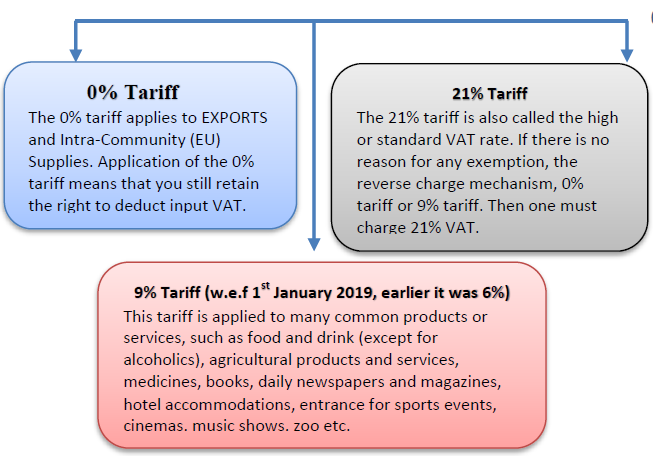The Value Added Tax (VAT) system is a cornerstone of modern taxation, providing essential revenue for governments worldwide. However, not all goods and services are subject to VAT, and the Netherlands is no exception. Understanding VAT exemptions is crucial for businesses and consumers alike, as it impacts pricing, purchasing decisions, and overall economic activity. This article delves into the nuances of VAT exemptions in the Netherlands, exploring which sectors benefit the most and what it means for the economy.
Unpacking VAT Exemptions: A Dutch Perspective
In the Netherlands, VAT exemptions are strategically implemented to support specific sectors and activities that are deemed socially or economically important. These exemptions are not arbitrary; they are designed to promote welfare, encourage certain behaviors, and alleviate financial burdens on essential services. For example, healthcare services, educational institutions, and certain cultural activities are often exempt from VAT, reflecting the government’s commitment to making these services more accessible to the public.
Healthcare is a prime example of a sector that benefits significantly from VAT exemptions. Medical treatments, hospital services, and even some medical devices are typically exempt from VAT, ensuring that healthcare remains affordable and accessible. This exemption is pivotal in a country like the Netherlands, where the healthcare system is renowned for its quality and inclusivity. By exempting these services from VAT, the government helps to reduce the overall cost burden on patients and healthcare providers.
Educational services also enjoy VAT exemption in the Netherlands. Schools, universities, and other educational institutions do not charge VAT on tuition fees, making education more affordable for students and their families. This policy reflects the Dutch government’s prioritization of education as a fundamental right and a critical driver of economic growth and social progress. By exempting educational services from VAT, the government fosters an environment where learning and development are accessible to all, regardless of financial status.
Key Sectors Benefiting from VAT Exemptions in the Netherlands
The healthcare sector is one of the most prominent beneficiaries of VAT exemptions in the Netherlands. Medical services, including treatments, surgeries, and consultations, are exempt from VAT, which significantly lowers the cost of healthcare. This exemption extends to medical supplies and equipment, ensuring that hospitals and clinics can provide necessary care without the added financial burden of VAT. For instance, a patient undergoing surgery would not have to pay VAT on the procedure or the medical devices used, making healthcare more affordable and accessible.
The education sector is another critical area where VAT exemptions play a vital role. Educational institutions, from primary schools to universities, do not charge VAT on tuition fees. This exemption helps to keep education costs manageable for families and students, promoting higher enrollment rates and educational attainment. For example, a family enrolling their child in a Dutch university would not have to pay VAT on tuition fees, reducing the overall financial strain and making higher education more attainable.
Cultural activities and organizations also benefit from VAT exemptions, reflecting the Dutch government’s commitment to preserving and promoting cultural heritage. Museums, theaters, and other cultural institutions often do not charge VAT on admission fees or services. This exemption makes cultural experiences more accessible to the public and encourages participation in the arts. For instance, a visit to the Rijksmuseum in Amsterdam would not include VAT on the ticket price, making it more affordable for tourists and locals alike to enjoy Dutch cultural treasures.
VAT exemptions in the Netherlands are more than just tax breaks; they are strategic tools used to promote social welfare, economic development, and cultural enrichment. By exempting critical sectors like healthcare, education, and culture from VAT, the Dutch government ensures that these essential services remain accessible and affordable for all. Understanding these exemptions is crucial for businesses operating in these sectors and for consumers who benefit from lower costs. As the landscape of VAT continues to evolve, staying informed about these exemptions will remain essential for navigating the Dutch economy effectively.
You might be interested in further exploring the intricacies of the Value Added Tax system, which is a fundamental aspect of taxation worldwide. Check out this detailed explanation in the Value-added tax article on Wikipedia. Additionally, to understand the specific nuances of how VAT exemptions operate and their implications, you can delve into the concept of Tax Exemption. If you’re curious about the broader economic context, learning about the Economy of the Netherlands provides vital insights into how these exemptions fit into the overall economic framework. Finally, the role of education and healthcare in the Netherlands will give you a deeper understanding of why these sectors receive special tax considerations.
